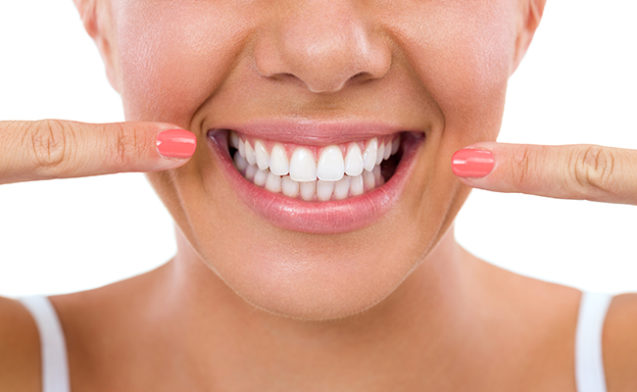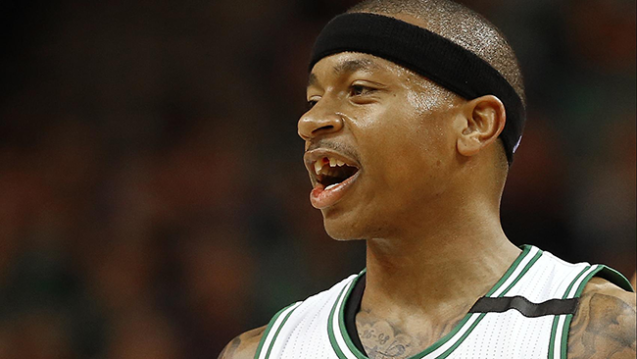By this point, it’s pretty clear that people want white teeth. As a country, we spend $1.4 billion on consumer teeth whitening products, and the teeth whitening industry generates over $11 billion a year in revenue. We’re not complaining that people are willing to pay to have white teeth, but it does beg the question—what’s staining our teeth in the first place?
Foods and drinks cause staining in a couple ways. Foods that are high in acid tend to strip away enamel, which exposes the more vulnerable dentin to staining. Many foods—typically ones with natural bright or rich colors—contain chromogens, substances that adhere to tooth enamel and stain it.
- Coffee and Tea: Whether you drink coffee or tea to give yourself a quick pick-up, you’re staining your teeth. The acids in these drinks can strip enamel off your teeth—and leave dark stains behind as well.
- Wine: Most people think of red wine as a culprit for staining, and it is. It’s acidic and contains stain-causing chromogens. However, most people don’t realize that white wine stains teeth—it’s much more acidic, so it strips tooth enamel and leaves them vulnerable to staining from anything else you’re eating at the time.
- Rich Sauces: Sauces that have a rich color—think tomato sauces and curries—combine both acidity and stain-causing pigments that can darken tooth dentin.
- Food Coloring: It’s not difficult to imagine why foods high in food coloring stain teeth. After all, they have added chemicals whose sole purpose is to turn the food a bright color! Popsicles and hard candies are big culprits here.
- Sugary Drinks: Sports drinks, energy drinks, and soda all contain acids and high amounts of sugar that are damaging to your teeth. They can leave your teeth vulnerable to stains from any food coloring in the drink—and cause cavities as well.
- Balsamic Vinegar: All vinegars are acidic, but balsamic vinegar combines the acidity with darker coloring that can stain dentin.
- Berries: Cranberries, blueberries, and cherries all contain lots of chromogens and can stain your teeth. In general, if a food (or drink) will leave a stain that is tough to remove from fabric, chances are it will stain your teeth as well.
We’re not recommending that you cut all these foods and drinks out of your diet. It’s just not practical. However, if you want to keep your teeth whiter for longer stretches of time, there are some tips you can use:
- Avoid sugary drinks and highly processed sugary treats. They tend to cause tooth decay as well as stains.
- Drink through a straw. If you’re going to have a sugary or acidic drink, using a straw can largely bring the drink past your teeth, reducing the risk of stains.
- Brush your teeth, rinse your mouth, or even chew sugar-free gum after eating or drinking these trouble foods. It helps remove the stain-causing compounds from your mouth.
You can always use consumer whitening products to reduce stains on your teeth, and in fact, we’ve blogged about them recently! However, if you really want to whiten your teeth as much as possible, we’d love to talk to you and explain the results you can achieve with professional whitening.
To learn more about how to reduce the risk of stains or to schedule an appointment, call your Lancaster, CA dentist at 661.952.7865 today!
More
Sports build camaraderie. They’re fun, adding some excitement to an otherwise mundane week, and they’re always a great source for exercise. But of course, all good things have to have some kind of drawback, right? If you thought this, you’d be correct. And with sports, you have to balance your fun with the risk of injury—and that includes mouth injuries.
As the NBA Finals start up, you don’t have to think too far back for a dramatic example. During the playoffs, Boston Celtics point guard Isaiah Thomas was going for the ball when an opposing player hit him in the mouth with his elbow. He was not wearing a mouthguard, so needless to say, Isaiah lost his front tooth and needed hours of oral surgery to repair the damage.
We can’t say for certain what would have happened if Isaiah were wearing a mouthguard, in many cases, basic safety precautions can prevent, or lessen the impact, of incidents like this one. The American Dental Association reports that athletes are 60 times more likely to suffer mouth injury when not wearing a mouthguard. That’s a lot of trips to the dentist saved by wearing a mouthguard!
So if you want to enjoy sports and make sure you don’t end up with a missing or chipped tooth, here’s some advice. If you play in a contact sport, or if there is any chance for a body part or object to hit your mouth, wear a mouthguard.
There are three types of mouthguards: Stock, boil and bite, and custom fitted.
Stock Mouthguard
The cheapest of the mouthguards, these offer some protection, but not as much as the others. Since they’re “one size fits all,” these mouthguards can often be uncomfortable.
Boil and Bite Mouthguard
Similar to stock mouthguards, you can buy these at sporting goods stores or places like Walmart. To get a better fit, you boil these mouthguards to soften the plastic. When the temperature of the mouthguard is safe, you place it in your mouth and bite down, allowing the mouthguard to shape to your mouth. A better-formed mouthguard provides more protection and makes for a comfortable fit as well.
Custom Mouthguard
Your dentist can create a mold of your teeth to create a mouthguard made specifically for your mouth. These mouthguards provide the best protection, and are the most comfortable; many people will forget they are even wearing them.
The bottom line is this: if you don’t wear your mouthguard, then it’s not protecting your teeth.
There are multiple reasons why people don’t wear their mouthguards. A lot of store-bought mouthguards make it hard to breathe, talk, and drink, or just aren’t comfortable. In many cases, coaches (and parents) don’t enforce the wearing of mouthguards.
If you’re going to play sports, and you want to protect your teeth, you need to wear a mouthguard. While a custom mouthguard may cost more money, their wearability means people are more likely to use them. And compared to the pain, time, and cost of surgery for fixing a mouth injury, even the most expensive custom mouthguard is inexpensive.
If you have more questions about mouthguards and how they can prevent mouth injuries, call your Lancaster, CA dentist at 661.952.7865 for an appointment today!
More
“People grow through experience if they meet life honestly and courageously. This is how character is built.”
– Quotation attributed to Eleanor Roosevelt’s wisdom teeth
If your wisdom teeth can offer insight like that, why would you ever have them removed? Most likely, you or someone you know has had them removed. It turns out there’s a solid reason.
In fact, wisdom teeth, which earned their name because they emerge at the onset of adulthood, aren’t all that wise. (Most people believe Eleanor Roosevelt came up with that statement on her own, but it’s no coincidence that it occurred after her wisdom teeth came in!)
Scientists believe that wisdom teeth helped our ancestors with a diet that was much harder on their teeth than our diet is to ours. However, they only begin to come in when people are around the age of 17 to 21 years of age. Since they emerge so late, after your other teeth are well-established, wisdom teeth often create unnecessary problems in your mouth.
If you keep your wisdom teeth, you might be able to eat beef jerky 10% faster, but the complications that can arise make them not worth the risk. (And if you eat enough beef jerky to think you might want to keep your wisdom teeth after all, you probably should speak to a nutritionist.)
What Can Go Wrong?
The main issue is that wisdom teeth become impacted. This means that your wisdom teeth cannot fully emerge, because your gums, back molars, or a combination of both are blocking them. Impacted wisdom teeth can create swelling and pain in your mouth. Additionally, they can be a difficult to keep clean, making you more likely to get cavities and gum disease.
Why Not Wait Until You Know There Is an Issue?
There are three good reasons to remove wisdom teeth before they cause problems, aside from the fact that they’re not necessary to help us process tough foods anymore.
1. When your wisdom teeth first emerge, the roots aren’t as established, making them easier to remove.
2. Wisdom teeth roots can grow near nerves, creating complications should you need to remove them later.
3. Recovery time is typically longer if you wait to get your wisdom teeth removed, with possible additional symptoms including excessive bleeding, numbness, and reduced jaw movement.
What Should I Do?
There is some debate if one should get their wisdom teeth taken out as soon as they come in. People with impacted wisdom teeth or other related complications should follow the advice of their dentist and take the proper action.
However, for many people, wisdom teeth can emerge with few or no complications. If this is the case for you, dental hygiene will become even more important to avoid cavities and gum disease. You will also want to stay consistent with your x-rays and professional cleaning visits to ensure your wisdom teeth stay healthy and clean.
Even if your wisdom teeth initially come in healthy, there’s no guarantee they won’t cause complications in the future. They could cause problems later in your life, which is a reason to just go ahead and have them removed.
Whatever you choose, your dentist will be able to track your wisdom teeth as and after they emerge. If you have questions about your wisdom teeth, please call or make an appointment with us today!
More
In almost every social situation, there is one thing most people are concerned about: halitosis, better known as bad breath. It can be embarrassing for you, uncomfortable to other people, and potentially a deal breaker for a job interview or date. To make it even more difficult to manage, our bodies have a great way of blocking out constant smells, making it very hard to determine if we have bad breath before it’s too late.
How do I know if I have bad breath?
You can easily test how your breath smells to others with this simple test. Lick part of your arm and smell it after about 10 seconds. Now, licking your arm in public may seem weird (and have its own social consequences), this test can give you a good indication of how your breath smells. However, it may not always be accurate. The best thing you can do is be aware of what causes bad breath and prevent it before it happens to you.
What Causes Bad Breath?
Hygiene
The most common cause of bad breath is straightforward; you have a dirty mouth. Bacteria live in your mouth, and when you eat, they eat. These odors are made worse by your tongue, which acts like a fleshy dish sponge, absorbing food particles and bacterial byproducts.
If you think this is your issue–and it is best place to start–the best remedy is to brush and floss daily. This will help eliminate leftovers for the bacteria to eat. To further eliminate any odor, open your mouth and look at the back of your tongue. If looks like it’s covered in a white or brown substance, this could be the main source of your bad breath. Brush as far back on your tongue as you can with your toothbrush, or use a tongue scraper, which will do the job more efficiently.
Dry Mouth
Saliva keeps the mouth clean by washing away bacteria, plaque, and keeping the acidic levels in your mouth at the proper level. If your mouth is chronically dry, bacteria can take over, leading to bad breath. If you are experiencing dry mouth, be sure you are drinking plenty of water. Additionally, check to see if any medication you are taking causes dry mouth. If so, talk to your doctor about solutions or a potential change in medication, if possible.
Specific Types of Food
There are certain types of food that cause bad breath. No matter what you do, you won’t be able to avoid the unwelcome baggage they carry. Coffee, tuna, onion, and garlic have a tendency to stick around even after you brush your teeth. For example, as garlic is digested, sulfur compounds permeate your lungs and skin, meaning there isn’t much you can do to hide the smell. For the sake of everyone around you, don’t go to hot yoga after eating a clove of garlic.
Disease
Bad breath can also be a sign of something more significant. If you have ruled out the issues above, bad breath (along with other symptoms) can be related to diabetes, gum disease, kidney disease, and many more chronic conditions. If you think your bad breath is connected to a more serious ailment, contact your family doctor to learn more.
What can the dentist do for bad breath?
Dentists are able to look at your mouth and see what the potential cause of your bad breath is. They will have the expertise to notice if it’s plaque, debris on your tongue, or periodontal disease. They can also prescribe you antimicrobial toothpaste and mouthwash to take care of the issue. The dentist may determine that the issue may not be located in your mouth, and would then refer you to your family doctor.
Come visit Dr. Weber at Douglas B. Weber, DDS if you have any more questions or concerns about halitosis.
More
By admin
18 Mar, 2017
Dental Health, Dental Hygiene, Dental Tips, General Dentistry, General Health, Lifestyle, Oral Health
cavities, gingivitis, gum disease, plaque, tartar, teeth cleaning
Why do I Need Professional Teeth Cleanings?
Let’s look at five reasons why you should get your teeth regularly cleaned.
1. We check for oral cancer
With cancer, the sooner it’s detected the better chance you have of successfully getting rid of it. Oral cancer is no different. During each teeth cleaning, we check for any signs of oral cancer.
2. Cleanings help prevent cavities
Brushing and flossing every day will do wonders in maintaining a healthy mouth. But, sometimes you may forget to floss, or maybe you had a few too many sodas and candy bars. Our dental hygienists will ensure that your mouth is free of plaque, and can also give you tips for your at-home cleaning if they see something you may not be doing.
3. Cleanings help prevent gum disease
Gum disease can easily creep up on anyone. It is often painless until it becomes a bigger problem. When diagnosed with gingivitis, it can still be reversed with proper gum maintenance.
Once gingivitis progresses to periodontal disease, it requires ongoing professional care to prevent further damage to your mouth. Professional cleanings at twice a year drastically reduce the risk of gum disease ever starting.
4. Having a healthy mouth contributes to a healthy life
Poor oral health has been connected with diagnoses for diabetes, heart disease and pregnancy complications. Keeping your gums and teeth healthy will help prevent the occurrence of these diseases.
5. Regular cleanings are cheaper than taking care of oral problems
Receiving two professional cleanings a year may be an expense you don’t like to see. However, teeth cleanings are much cheaper than other procedures, such as root canals, scaling and root planing, and dental implants.
There is nothing better than a freshly cleaned mouth! Our dental hygienists will make sure you have pain free experience, and you can leave knowing you’ve taken a giant leap forward in maintaining a healthy smile.
If you have more questions about our professional teeth cleanings, or if you’d like to schedule an appointment, please call your Lancaster dentist at (661) 952-7865.
More





